Are you feeling frustrated with the service you've received from your healthcare provider? You're not aloneâmany people find themselves grappling with similar concerns, whether it's long wait times, miscommunication, or unsatisfactory treatment. It's essential to voice these issues, as constructive feedback can lead to positive changes and improved care for everyone. Join me as we explore effective ways to express your complaints and advocate for better healthcare services.
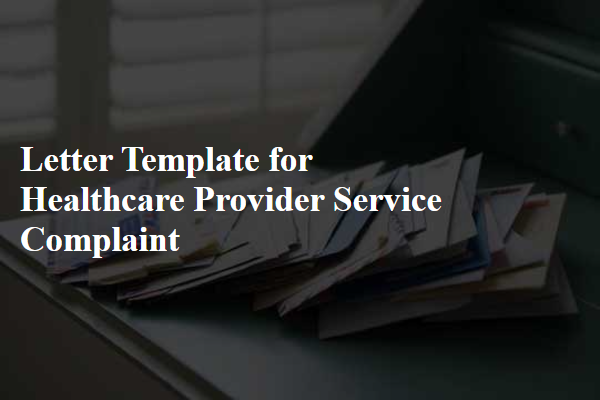
Clear identification of the issue
A lack of timely communication within the hospital's emergency department can lead to decreased patient satisfaction. Patients experience frustration when waiting over two hours for acknowledgment of their concerns regarding delays in care. Effective communication is essential, especially during critical situations like trauma cases, as witnessed in several instances at St. Joseph County Hospital, located in the heart of South Bend, Indiana. Documented complaints reveal that the absence of sufficient staff to manage high patient volumes results in inadequate updates on treatment timelines, ultimately jeopardizing patient trust and the facility's overall reputation. Addressing these communication gaps is vital to improving service delivery and ensuring patient comfort during their healthcare journey.
Specific details about the incident
On March 15, 2023, during a scheduled appointment at General Health Clinic, I encountered significant issues regarding the service provided by staff members. Despite arriving on time at 10:00 AM, I faced an unexpected wait of over 45 minutes without any updates or communication regarding the delay. The waiting area, located in Suite 205, was overcrowded, making it difficult to maintain personal space and comfort. Additionally, the nurse assigned to my case displayed a lack of professionalism, abruptly dismissing my concerns about my prescribed medication, Lipitor, without proper explanation or reassurance. This lack of attention not only caused me stress but also left me feeling undervalued as a patient seeking healthcare support. I request an acknowledgement of this incident and recommendations to prevent similar experiences for future patients at your facility.
Impact on patient care or well-being
A healthcare provider's negligence can significantly impact a patient's care and well-being. Delayed response times in emergency rooms, averaging over 30 minutes for critical cases, can exacerbate medical conditions, leading to severe consequences such as heart attacks or strokes. For instance, a shortage of nursing staff during peak hours at City Hospital has resulted in inadequate monitoring of vital signs, increasing the risk of complications. Furthermore, miscommunication among healthcare teams can lead to medication errors, with studies indicating that approximately 1.5 million preventable adverse drug events occur annually in the United States. This lack of coordination and oversight undermines the quality of care and can leave patients feeling vulnerable and anxious about their health outcomes.
Request for resolution or remedial action
Healthcare service complaints often stem from inadequate communication or unsatisfactory treatment experiences. Patients can encounter long wait times in facilities such as hospitals or clinics, particularly during peak hours like 3 PM to 6 PM. Discrepancies in medical billing, including unexpected charges exceeding $500, can further frustrate individuals seeking assistance. Staff interactions may lack professionalism; an unempathetic response from a nurse during a critical moment can negatively impact patient well-being. Moreover, access to essential medications may be hindered by stock shortages, especially for chronic conditions like diabetes, where a lack of insulin can have serious health implications. Proper resolution may require immediate corrective actions from healthcare providers, including improved staffing, enhanced training, and revamped communication protocols.
Contact information for follow-up
Making a complaint regarding healthcare provider services requires attention to detail and a clear presentation of the issue. Inadequate patient care can lead to critical health implications, as experienced at facilities like Memorial Hospital in Springfield. Instances of long wait times (averaging over two hours during busy periods) can exacerbate medical conditions. Issues with staff communication may contribute to patient anxiety, particularly for vulnerable populations, like those undergoing treatment for chronic diseases. Ensuring effective follow-up communication through accurate contact details is essential for resolution, facilitating ongoing dialogue and potential improvements in service delivery.
Letter Template For Healthcare Provider Service Complaint Samples
Letter template of formal complaint regarding healthcare service quality.
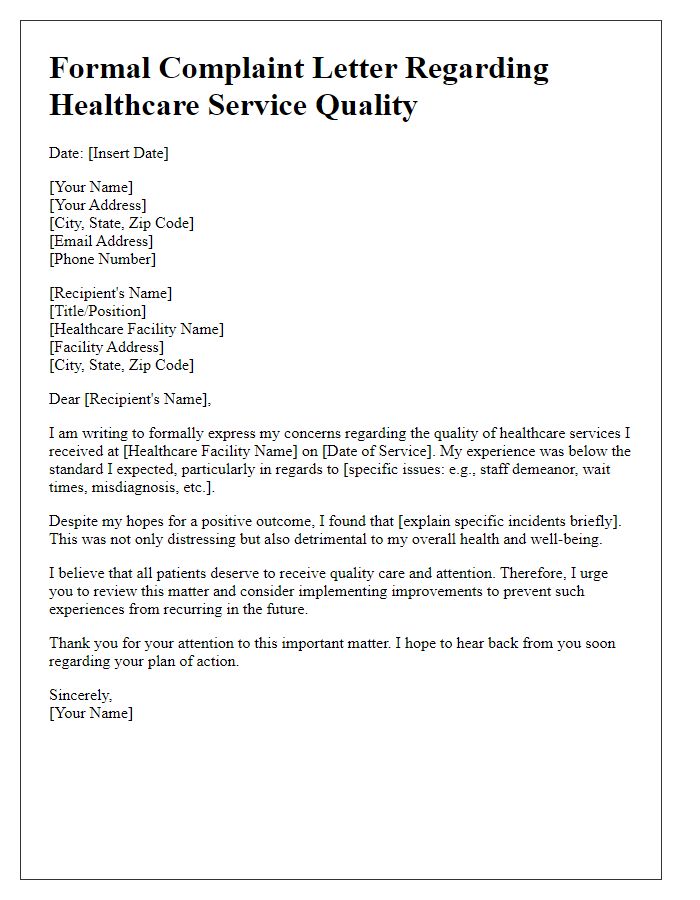
Letter template of complaint concerning healthcare provider's response time.
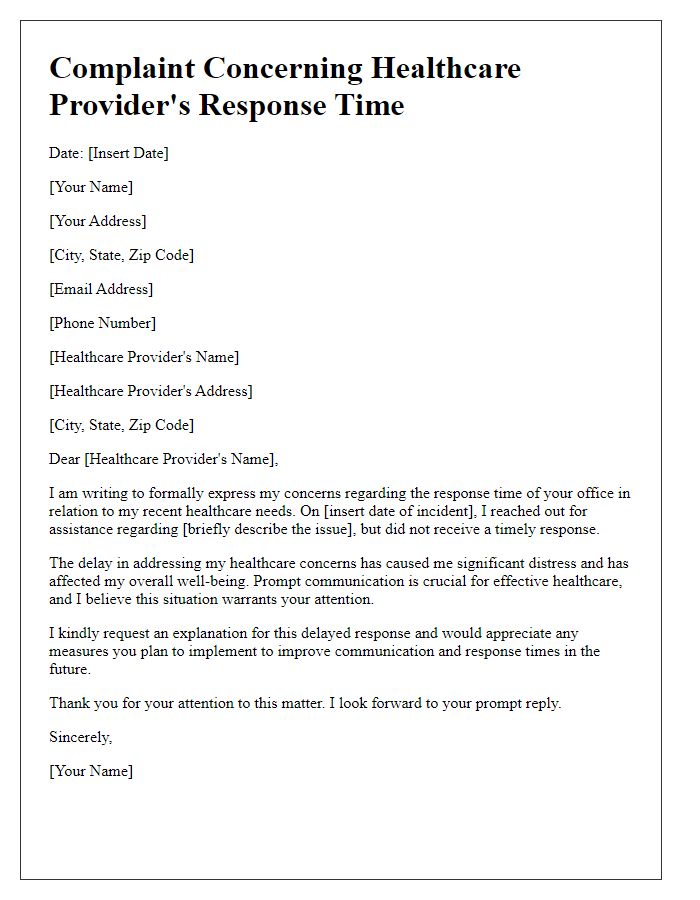
Letter template of concern about billing and insurance issues with provider.
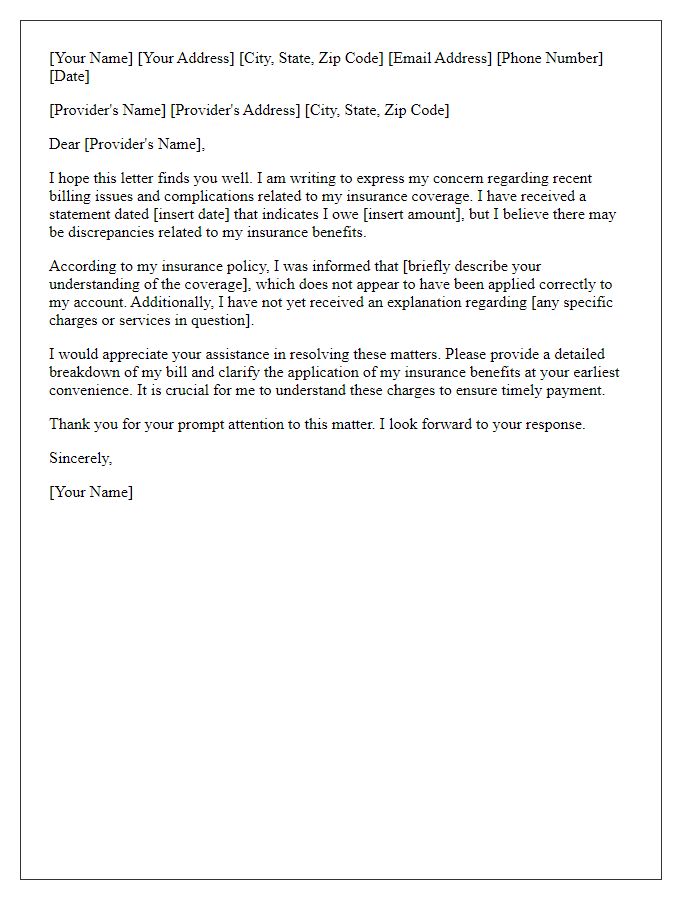
Letter template of complaint regarding accessibility to healthcare services.
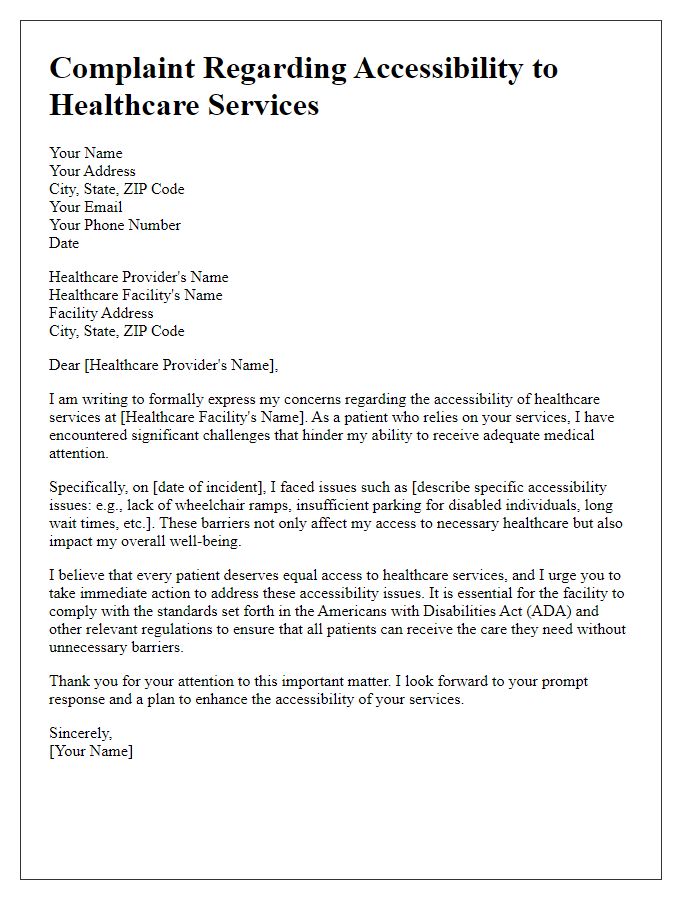
Letter template of report on unprofessional behavior of healthcare staff.
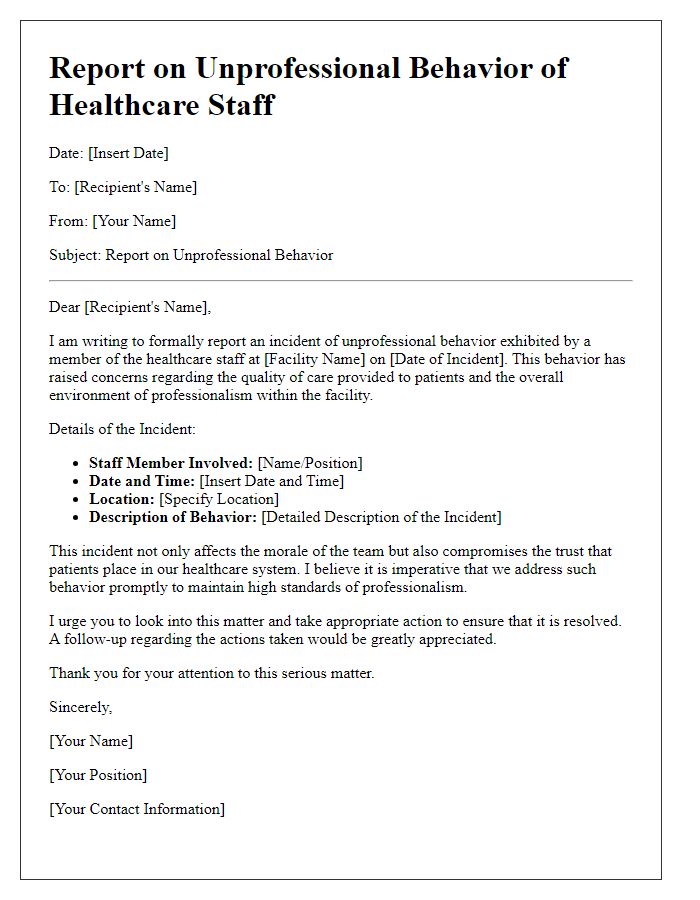
Letter template of appeal for resolution of healthcare service concerns.
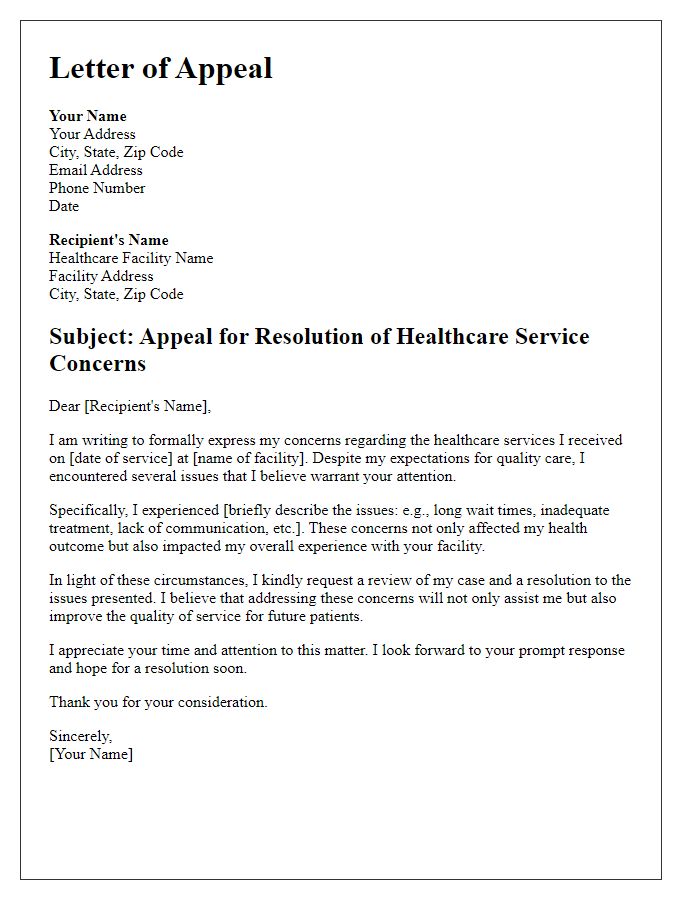

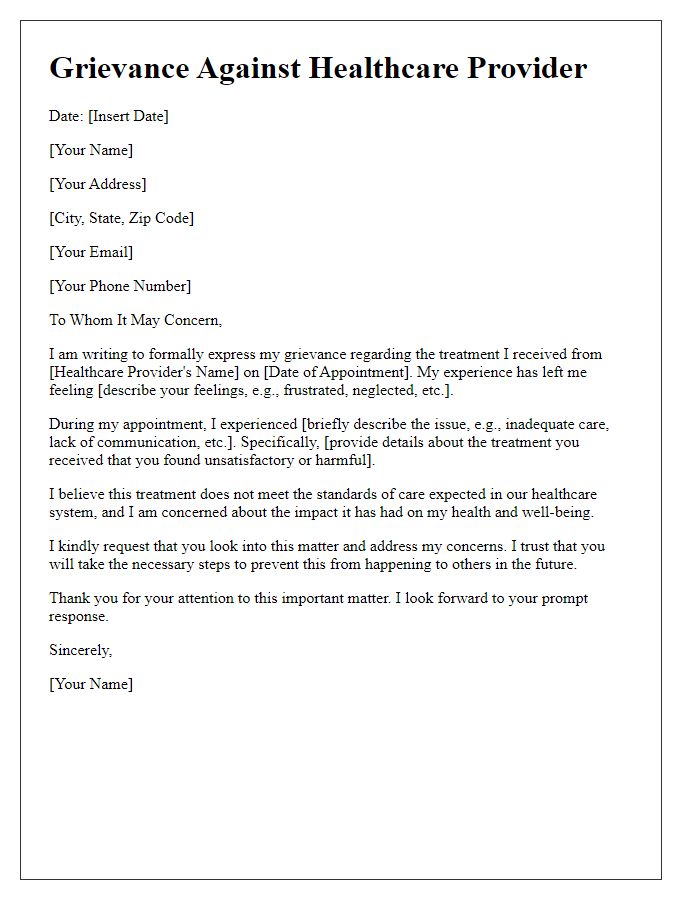
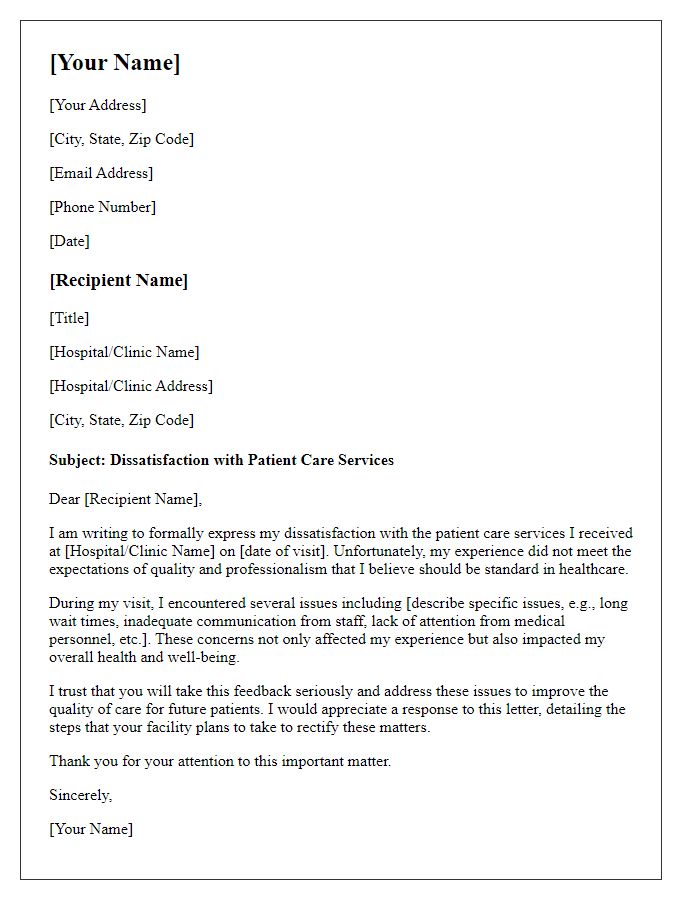
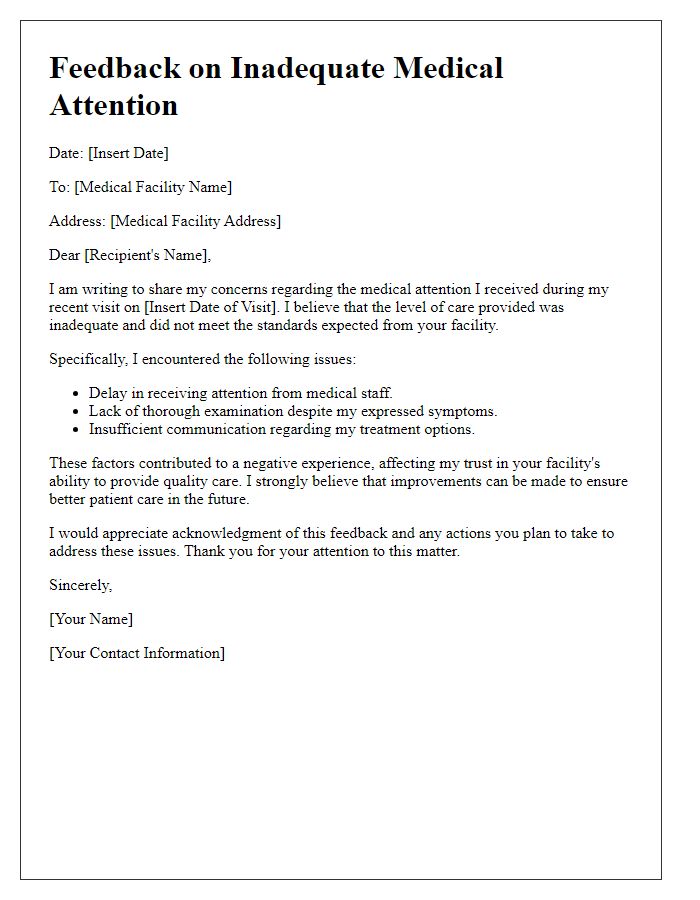
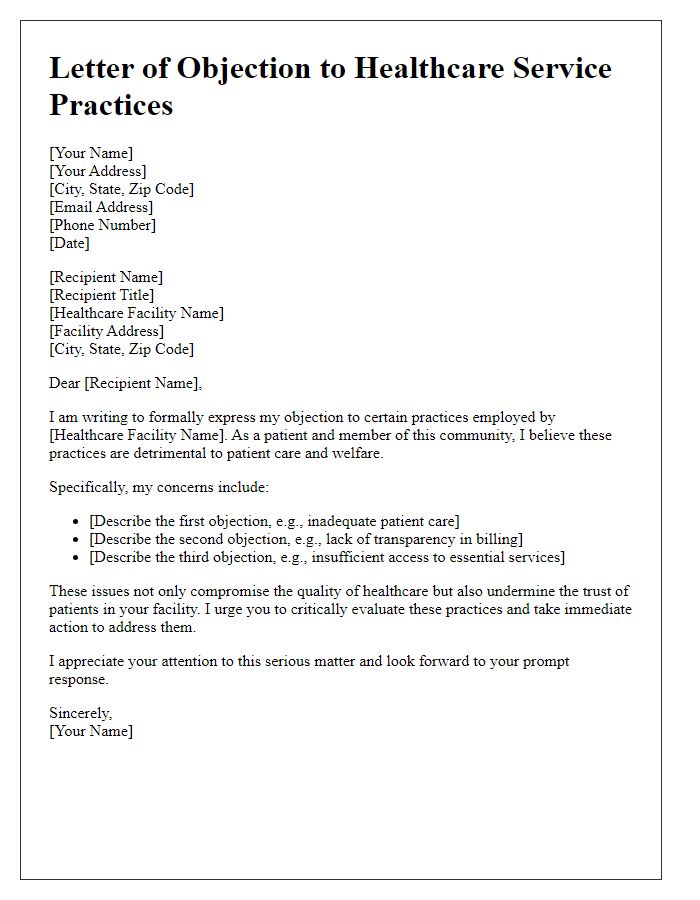


Comments